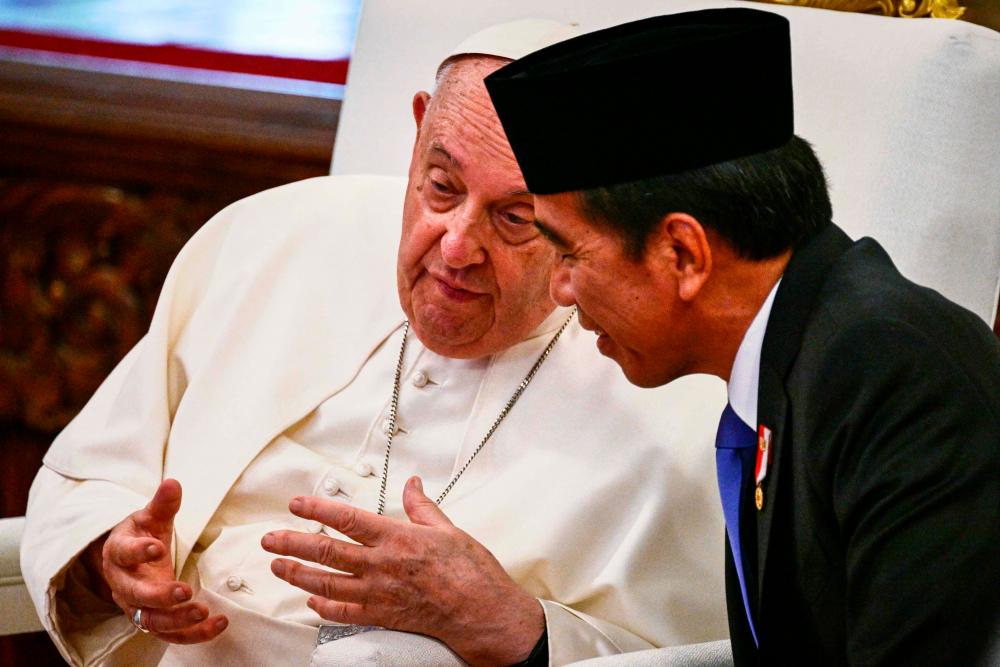JAKARTA: Indonesia’s President Joko Widodo on Wednesday praised the Vatican City’s consistent support for peace in Palestine and their backing of a two-state solution.
Speaking at the State Palace in Central Jakarta during Pope Francis’s visit to the republic, Widodo, also known as Jokowi, said these efforts are essential for resolving the long-standing conflict.
“As we are all aware, conflicts and wars are occurring in various parts of the world, including in Palestine, which has claimed over 40,000 lives. War benefits no one and only brings suffering and hardship to ordinary people,” he said.
Jokowi stressed the importance of embracing differences, fostering acceptance, and enhancing tolerance to promote global peace and create a better world for humanity.
Pope Francis, the leader of the Catholic Church and Vatican City, is on a four-day visit to Indonesia at the invitation of Jokowi, which will conclude on Friday.
His visit is part of a broader tour of the Asia-Pacific region aimed at fostering interfaith dialogue, with a particular focus on Indonesia, the world’s most populous Muslim-majority nation.
Jokowi noted that the Pope’s visit showcased the significance of celebrating diversity in Indonesia, which is home to 714 ethnic groups and 17,000 islands, each with its own unique culture, religion and ethnicity.
“For Indonesia, differences are a blessing, and tolerance is the key to unity and peace as a nation,” he said, adding that maintaining harmony amid the diversity is crucial.
He believed that the spirit of peace and tolerance, championed by both Indonesia and the Vatican, is especially important in a world increasingly marked by turmoil.
The Pope in his speech praised Indonesia for its ability to unite despite its diversity, emphasising that respecting cultural and ideological differences makes diversity a valuable asset.
He condemned violence disguised as religious zeal; reaffirmed the Catholic Church’s commitment to peace and respect for all faiths, and noted global peace challenges due to a lack of respect for differences.
“Peace can be achieved if everyone works towards it both individually and collectively, transcending all violence, differences and social injustices,” he added









